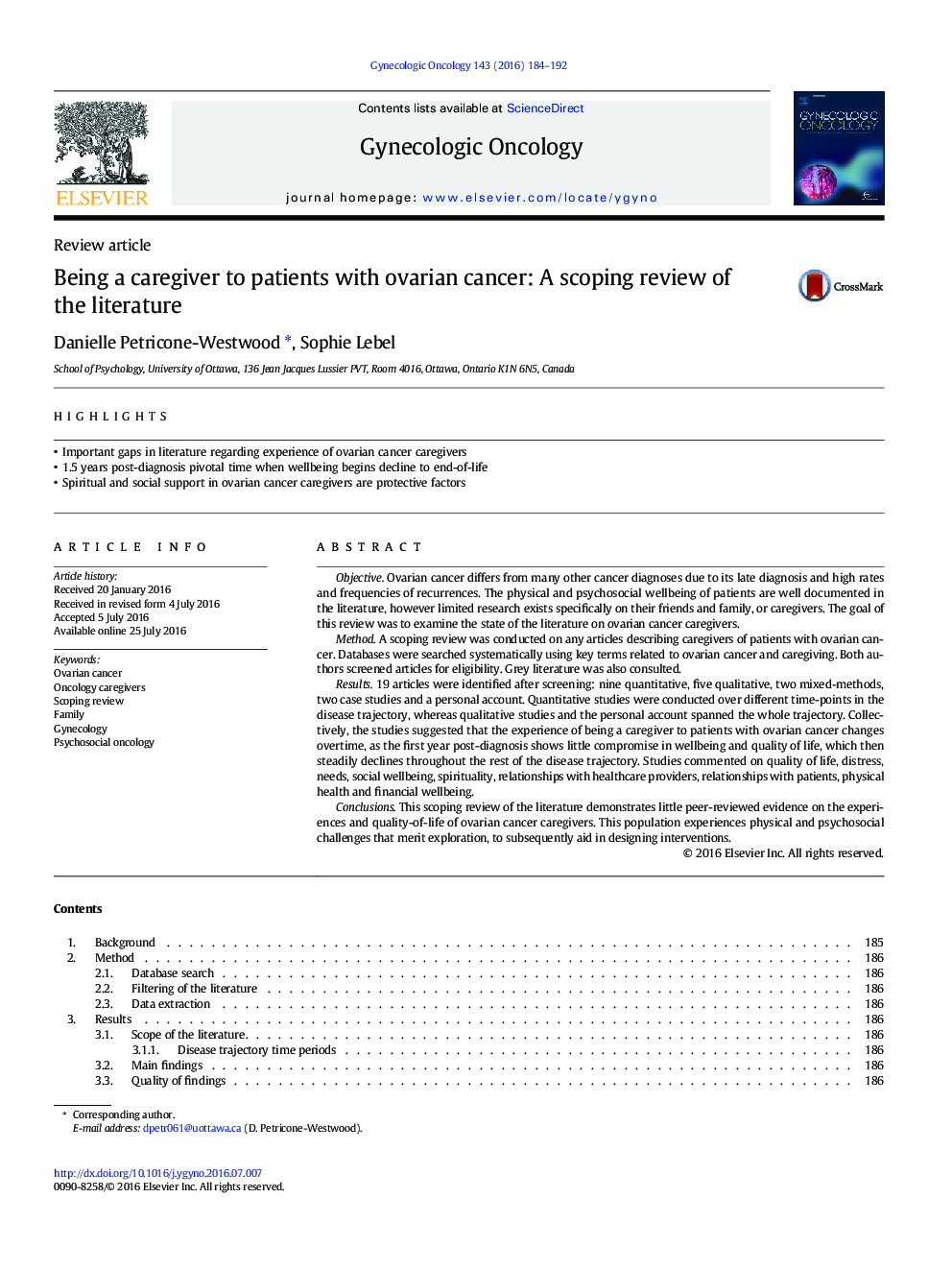| Article ID | Journal | Published Year | Pages | File Type |
|---|---|---|---|---|
| 3942427 | Gynecologic Oncology | 2016 | 9 Pages |
•Important gaps in literature regarding experience of ovarian cancer caregivers•1.5 years post-diagnosis pivotal time when wellbeing begins decline to end-of-life•Spiritual and social support in ovarian cancer caregivers are protective factors
ObjectiveOvarian cancer differs from many other cancer diagnoses due to its late diagnosis and high rates and frequencies of recurrences. The physical and psychosocial wellbeing of patients are well documented in the literature, however limited research exists specifically on their friends and family, or caregivers. The goal of this review was to examine the state of the literature on ovarian cancer caregivers.MethodA scoping review was conducted on any articles describing caregivers of patients with ovarian cancer. Databases were searched systematically using key terms related to ovarian cancer and caregiving. Both authors screened articles for eligibility. Grey literature was also consulted.Results19 articles were identified after screening: nine quantitative, five qualitative, two mixed-methods, two case studies and a personal account. Quantitative studies were conducted over different time-points in the disease trajectory, whereas qualitative studies and the personal account spanned the whole trajectory. Collectively, the studies suggested that the experience of being a caregiver to patients with ovarian cancer changes overtime, as the first year post-diagnosis shows little compromise in wellbeing and quality of life, which then steadily declines throughout the rest of the disease trajectory. Studies commented on quality of life, distress, needs, social wellbeing, spirituality, relationships with healthcare providers, relationships with patients, physical health and financial wellbeing.ConclusionsThis scoping review of the literature demonstrates little peer-reviewed evidence on the experiences and quality-of-life of ovarian cancer caregivers. This population experiences physical and psychosocial challenges that merit exploration, to subsequently aid in designing interventions.
